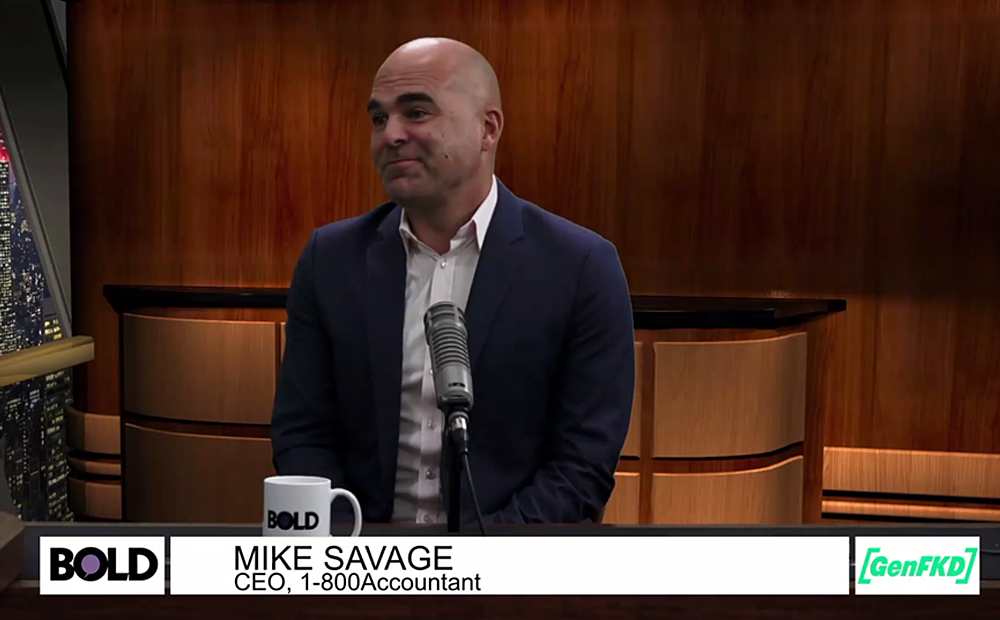
NEW YORK, NY – Finally, in this currently politically polarized nation, Democrats, Republicans and Independents alike, whether they are living and working in the blue states on the East and West Coasts, in the red states in the middle, or in the South can be heard asking the same exact question during this tax season: How does President Trump’s tax plan, the Tax Cut and Jobs Act (TCJA), affect me?
However, while the overwhelming majority of accountants are said to be in a non-partisan manner asking that question on behalf of their clients, most economists have shown themselves to be anything but non-partisan. As regularly reported in the media, virtually every Democrat and liberal economist has declared TCJA to be a gift to the wealthy and a punishment to the working class and the poor. So according to them, if you fit into either one of these last two categories, TCJA works against your economic well-being. On the other side, most of their Republican and conservative counterparts have proclaimed that the plan reduces taxes for Americans at every financial level. So, in their view, whatever your income level, TCJA will leave you with more cash in your pocket.
As to be expected, elected officials of both parties have been outspoken forecasters as to who will benefit and who will be harmed by TCJA. And predictably, those forecasters have also followed the party line. Typical of the praise TCJA has received from Republican lawmakers was offered by the longest serving member of the House of Representatives, Hawaii Congressman Don Young. Asserting that the Trump tax plan helps people of all economic classes, Young exclaimed that it “does what’s right for the nation, and the great land will be great again.” New York U.S. Senator Schumer, as you would expect, holds the opposite view: to Schumer, under TCJA, “Under this bill the working class, middle class and upper middle class get skewered while the rich and wealthy corporations make out like bandits. It is just the opposite of what America needs, and Republicans will rue the day they pass this,” Schumer said in a statement.
However, to Mike Savage, the founder, owner and CEO of 1-800- Accountant, one of the largest accounting firms in America specializing in individual tax payers and small business owners, both analyses are off base. Savage, whom I interviewed last week in the large mid-town Manhattan office he shares with the 360 accountants and bookkeepers who work for his firm, told me, “Anyone who tries to place political labels on President Trump’s tax plan is seriously mistaken, or knows better, but is trying to score some cheap political points. In reality, to understand Trump’s tax plan and how it impacts on the individual American taxpayer, you must look at other factors, most significantly, where you live.”
Savage, 45, who worked as a CPA in a major accountant firm before starting 1-800 Accountant five years ago, elaborated, “If you are in a higher income level bracket, own a home and live in a state with high state income and high property taxes, the new tax plan works against you. On the other hand, if you are in a lower- middle, middle or even upper middle- income level, own a home and a live in a state with low state income and low property taxes, it [TJAC] probably works to your advantage.”
The high taxed states Savage was referring to, actually there are fifteen generally so designated, include, California (12.3%) Oregon (9.9%,), Minnesota (8.5%), New Jersey (8.9%), the District of Columbia (8.95%) and New York (8.82%). By contrast, from the 35 generally categorized low taxed states, seven – Alaska, Florida, Nevada, South Dakota, Texas, Washington and Wyoming – waive all income tax payments. And two others – New Hampshire and Tennessee- tax their citizens only on their dividends and investments.
Referring to two key features of TJAC, Savage explained why taxpayers from these 35 low or non- taxed states are helped and taxpayers from high taxed states are hurt by it. “Home owners [under TJAC] can deduct interest on home loans only up to $ 750,000 and income earners can deduct only a maximum of $10,000 on state and local deductions”, he stated.
“So”, Savage continued, “if you live in a state that has high local and state income taxes and million-dollar plus home values, you lose two major deductions you used in the past. But you are unaffected by this if you live in states with low state and local income taxes with homes that sell in a more modest range, which leaves you to receive benefits, without losing anything, from the tax payer friendly components of the plan, which include the almost doubling of the standard deduction [the flat, non-itemized percentage of your annual income the I.R.S. allows you to subtract from your total yearly earnings], and the increase of the child tax credit from $1,000 to $2,000 for each qualifying child.”

However, Savage, whose firm provides both personalized and virtual tax preparation and a host of other accounting and bookkeeping services to approximately 200,000 business owners throughout America, said that, unlike the individual state to state variables affecting the non-self- employed individual tax payer, TJAC is geographically neutral to America’s entrepreneurs. “The President’s tax plan has the same impact on business owners throughout every one of the fifty states. There are many pluses and minuses of the plan for business owners, all irrespective of where the business is located”, Savage noted.
Discussing the “pluses” first, Savage contended that the most important business friendly aspect of TJAC is the 20% tax deduction it affords to small business owners. “That is probably the single largest benefit they receive. It reduces what was previously a very heavy tax burden and allows them to keep a larger portion of the profits they earned and also to grow their businesses”, he stated.
The second benefit business owners derive from TJAC, Savage contended, is found in the provision of the law which allows them to deduct up to 1 million dollars for the cost of newly purchased equipment, up from $510,000 from the previous code. In addition, as part of a related provision, business owners can now deduct 100% of the total cost of equipment or any other asset, including real estate or a new automobile, in the same year it was purchased, where in the previous law only a 50% deduction for the same was allowed. “These capital investment deductions are great for businesses”, Savage maintained. “Many of my clients use the money they save in tax payments to purchase more and sometimes even better equipment and update other assets.”
Lastly, as a major new advantage TJAC offers to small business owners, Savage cited the new tax credit, ranging from 12.5% to 25%, for salaries paid to workers who are on medical or family leave. “Employees who receive paid leave are often replaced by temps, leaving the business owner to, in effect, pay two salaries for one job’’, said Savage. “This has proven to be especially difficult for owners of small businesses. The new tax credit [for family and medical leave] will lessen that burden.”
While Savage told me that he believes that on balance TJAC is beneficial to small business owners, he did not minimize the negative impact that several features of the bill will impose on many of them. He noted that the most unfavorable to small business owners portion of TJAC involves the loss of three deductions that previously had been used by them. “Overall I believe it [TJAC] to be a plus for small business owners. However, under the new law business owners will be hurt by the loss of three basic deductions they were allowed to take prior to it”, he said.
Savage told me that he believes for many businesses the most harmful of the three is the loss of the deduction for entertainment expenses. Before TJAC, he noted, business owners were allowed to deduct up to 50% for such business-related entertainment expenses as treating clients to shows and to sporting events. The new plan, he stated, totally eliminates that deduction. “Entertainment is a time-worn tool used by business owners to develop closer relationships with their clients, and at the same time, attract new business opportunities. With that deduction now gone, many business owners will unfortunately no longer be able to afford it”, he bemoaned.
The next two deductions which TJAC reduced or eliminated were, according to Savage, interconnected because they involve benefits many business owners had previously provided to their employees. Savage pointed out that while in the past employers were allowed to take a 100% deduction for meals they provided to employees, they are now allowed to deduct only 25% for that employee perk; and by 2025, that deduction will be totally eliminated.
Similarly, Savage noted, under the former tax code, employers were able to deduct the cost they assumed to pay for parking and public transportation for their workers. However, under TJAC, he expounded, that deduction can no longer be taken.
Explaining why he believes these two new TJAC provisions are harmful to small business owners, Savage stated, “Treating employees to meals and picking up transportation costs has for years been a great way for business owners to demonstrate their appreciation to their employees, and, at the same time to in effect supplement their salaries. Unfortunately, without the deductions allowed in the past, many business owners will no longer be able to afford the cost of providing these benefits.”
While providing his analysis of TJAC to me for an hour and a half, the only advise relating to tax preparation under the new plan that Savage was willing to publicly offer to individual taxpayers and small business owners was simple. “The new federal tax plan is complex’’, he stated. “[So] Make certain that your accountant is certified, always accessible and possesses a thorough knowledge and understanding of every one of the many components of the new federal tax law, as well as your individual state current tax code. This is the only way of ensuring that you will receive the full tax relief you are legally entitled to.”
Sounds like the kind of sound advice that even Democrats, liberals, Republicans and conservatives might agree with.



Comments are closed.